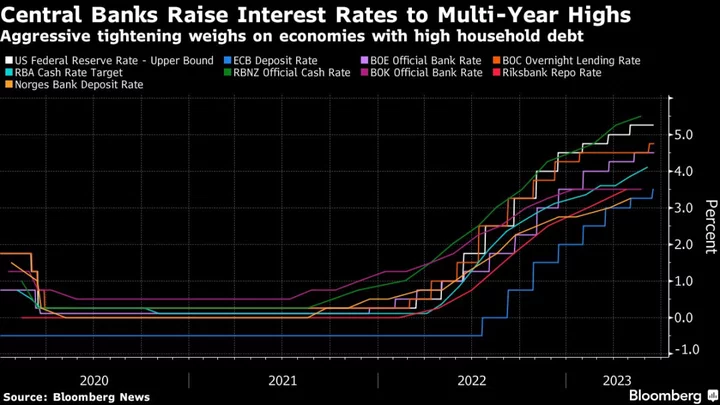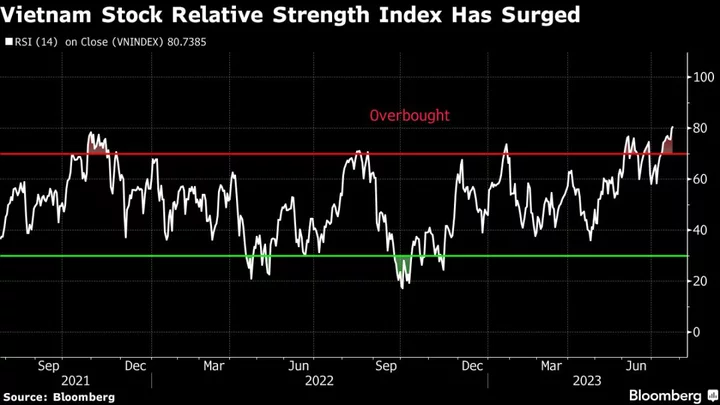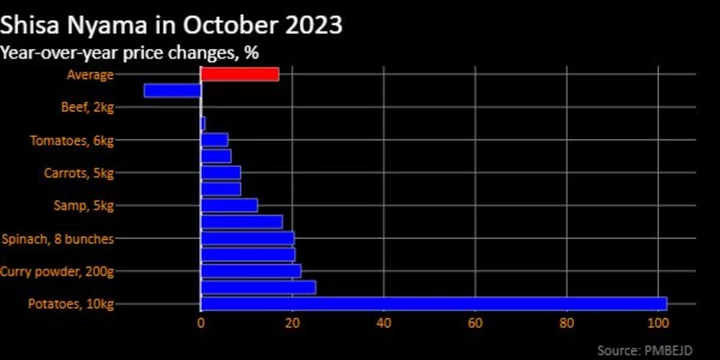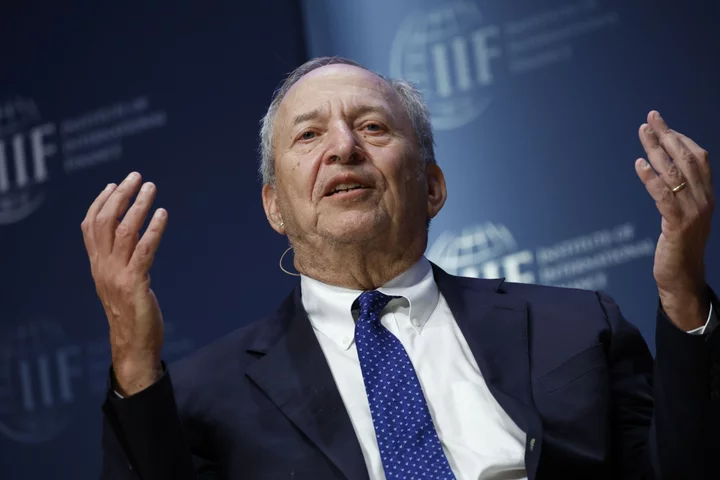A growing chorus of investors is buying bonds from certain developed nations where they believe interest rates will be cut sooner and faster than many economists expect.
Australia and Sweden are among money managers’ favorite markets for such trades, along with South Korea, Norway, New Zealand and Canada. What they all have in common is an economy battered by highly leveraged households, and a market that has not priced in rate relief so soon.
It’s the opposite of what’s going on in the US, where traders have been fading bets on rate cuts this year after stronger-than-expected activity data. While the Federal Reserve is seen reducing rates early next year, the Reserve Bank of Australia and the Riksbank are only seen easing later in 2024.
“The US economy is structurally healthier and able to withstand higher rates for longer than those economies with household leverage imbalances,” said Iain Cunningham, a portfolio manager at Ninety-One Asset Management.
Cunningham has been buying government bonds from Australia, New Zealand, South Korea, and, to a lesser extent, Sweden, since mid-2022, based on the view that the market is wrong in pricing in rate cuts will take so long to come into place.
Read more: Bond Bulls Shred 2023 Playbook After Favorite Trade Backfires
Investors holding those bets argue that these economies are way more exposed to higher interest rates than the US due to their more elevated household debt levels, and the full effect of their tightening cycles is yet to kick in.
Household debt accounts for about 190% of gross domestic product in Australia, Sweden and South Korea, according to the latest available OECD data referring to the end of 2021. That compares with a ratio of around 95% in the US and Germany.
“As we go into late 2023 and early 2024, we may see a situation where rates are coming down fairly quickly in these economies relative to the US or Europe,” said Martin Harvey, a portfolio manager at Hartford World Bond Fund.
Since late last year, Harvey has increased his exposure to Sweden, Norway and Australia, with the latter being the US-based fund’s biggest exposure excluding Treasuries.
While Australia surprised markets this month by raising interest rates, minutes from the meeting show that the decision was a finely balanced one, given risks to the economy and employment, and Harvey doesn’t rule out cuts later this year as the economy slows. That goes against swaps pricing, which implies the key rate being lifted by an additional 54 basis points to 4.64% by December before cuts begin in the second half of 2024.
In Sweden, markets price roughly 40 basis points in additional hikes by November, according to calculations by SEB, before policy starts to loosen around mid-2024. Pictet Asset Management is mulling increasing its exposure to the nation’s bonds as it expects that excessive tightening by the Riksbank will further hurt the economy, requiring more rate cuts.
Read more: Sweden’s Property Crunch Worsens as Another Firm Cut to Junk
Brendan Murphy, a portfolio manager at Insight Investment, which manages around $1 trillion, is buying South Korean bonds betting the country could take a relatively big hit if global economic growth slows in the coming months.
South Korea’s central bank held policy rates unchanged for a third straight meeting in May, while reinforcing a message that another hike may be possible amid sticky inflation. Prior to the BOK’s announcement, investors and many analysts were betting on rate cuts in Korea later this year, as risks to economic growth build.
“The danger for markets, and risk assets in particular, is that central banks effectively have to sacrifice growth to get inflation back under control,” Ninety-One’s Cunningham said.
--With assistance from Alice Gledhill.
(Updates with reference to RBA minutes in tenth paragraph.)









